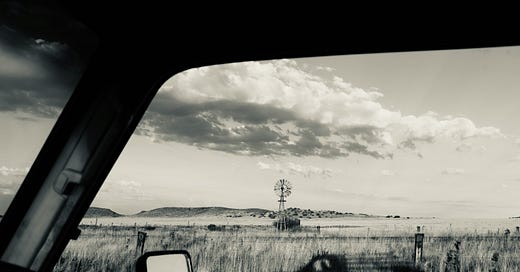I’m standing in the garden of a house, not far from the front gate. From here I can watch everything without being seen. The house is one of those old wooden ones, home to a metropolis of termites—or maybe red ants. No one cares. There are no flowers. The trees look exhausted. Bent over. As if carrying their leaves were a burden. They’re terminal, in a way, they don’t want to die, but they don’t want to live either.
I lift my eyes, trying to escape the weight of pain crushing this single hectare of the world. There’s not a cloud in the sky, which screams in its brilliant blue. You’d think that, since it’s May, the sun would feel warm. But no… light just slides down slowly to the ground, powerless.
Alice’s the only child among the adults gathered to mourn the family cat. They’re burying him under an old birch tree—the one he used to climb every year for all fifteen years of his life. I think so, anyway. No one told me that. There are twenty adults. And me. And my wife. But she’s far from me, standing with the others.
The little girl doesn’t seem to be suffering. She’s not crying, fidgeting, or wringing her hands. Her mother dressed her in black, maybe to teach her that grief and death are dark things.
I watch her. She watches no one. She seems like a clear spirit, trapped in a pose. She’s facing the death of all things for the first time. She’ll start to understand that time passes, and that it changes your life. It’ll be the first chip in her monolithic hope.
A light breeze stirs the scene. Leaves rustle in the trees. Alice’s father walks over and puts his hand on her shoulder. But it’s her mother who takes her, and helps her down from the white chair. Alice’s sweaty legs rub noisily against the plastic. She approaches the small, dark hole, alone. Someone coughs.
“Say something to him. Say goodbye one last time,” her mother tells her.
Alice stares in disbelief. Her sparkling eyes are wide open. She probably would’ve preferred to remain on the outskirts of the scene. All she knows is that her cat is in that black hole. She doesn’t yet understand how much it matters to catch every detail. How to give meaning to a goodbye. Right now, her soul is full of sharp, incoherent fragments that sting and cut. I know—I’ve been there. She can’t reconcile life and death. No one can. They’re too far apart, too contradictory.
After a few quick goodbyes, handshakes, and hollow promises to see each other again soon, my wife and I leave quietly, get in the car and head home. Our children are waiting for us.
“You’re so quiet, Michael,” she says in her soft Italian. “Are you thinking about your father?”
“No.”
She doesn’t smile.
“Yeah,” I say. “I’m thinking about my father.”
“At least you were with him when he died.”
“It’s not about his death. It’s about how much of his life I missed.”
“It’s not your fault.”
A couple of cars speed past us. I’m in no rush.
“I feel sorry for Alice,” my wife says again. “She was so sad…”
I’d like to shut it down. But I go on: “It’s normal.”
“What?”
“That you feel sorry. The mood was somber, like a funeral.”
“It was a funeral.”
“That girl didn’t want a funeral for her cat. And she doesn’t really get what happened.”
“She’s six. She can face death.”
I glance at her, then back at the road. It’s empty now—long, stretched out, wrapped in a ring of dark clouds.
“No one can face death.”
“So how do we fix it?”
“We don’t.”
She shifts position on the seat. “You’re impossible.”
“You asked me to talk about it.”
“Why do you have to make everything so complicated?”
“We’re layers,” I say. “Different worlds—times, memories, feelings—stacked inside us. That little girl isn’t feeling your kind of pain. She’s feeling hers. You can try to understand it, but you won’t.”
She looks at me, then pulls her legs up, takes off her shoes—too tight, but she wears them anyway—and rests her bare feet on the dashboard.
“That’s crazy,” she says.
“It’s just... how it is. We don’t grieve the same. Not even for a cat.”
“Still, she’s suffering.”
“I know.”
“Then why are you talking like it’s physics or philosophy or whatever?”
“Because if I don’t, I’ll lose it.”
She goes quiet. Her bare feet distract me.
Then she starts again: “We could’ve stayed with her.”
“We’re going home.”
“We could have stayed.”
“Her parents will die, one day.” My voice cracks. I crack. “That’s how it goes. Stop trying to fix something that isn’t broken. It’s like being born—you don’t get to fix it unless you’re ready to end it.”
She looks at me. I don’t need to see it. I can feel it when she looks at me like that. She doesn’t say a word, but puts her hand on mine. Time thickens. Slows.
“Don’t worry about Alice. She’ll be okay,” I say.
“I’m sorry. About your father.”
“I’m okay.”
She doesn’t look at me. “I was thinking about our kids. About when we—”
I step in: “They’ll be okay, too.”
It starts to rain. At least we’re almost home.
It’s sort of a true story, but just a story, after all.
There’s no real reason, I just needed to write it.
Thanks for reading and supporting my work,
Michael.





Very well done Michael
You don’t read this deeply intense piece, you feel it! Wonderful Michael! 💜✨🤗